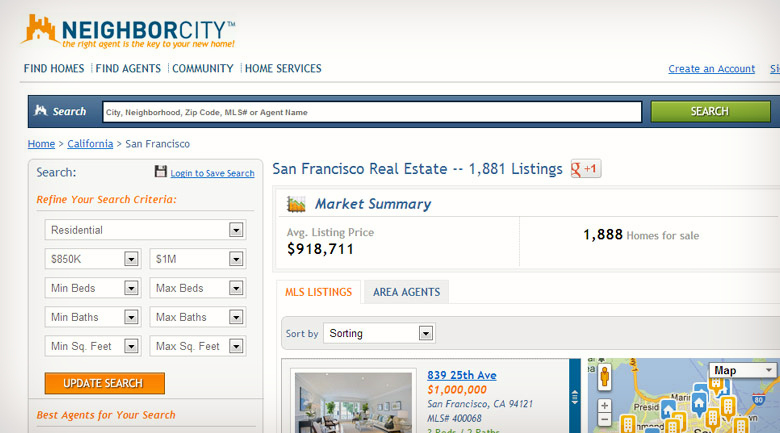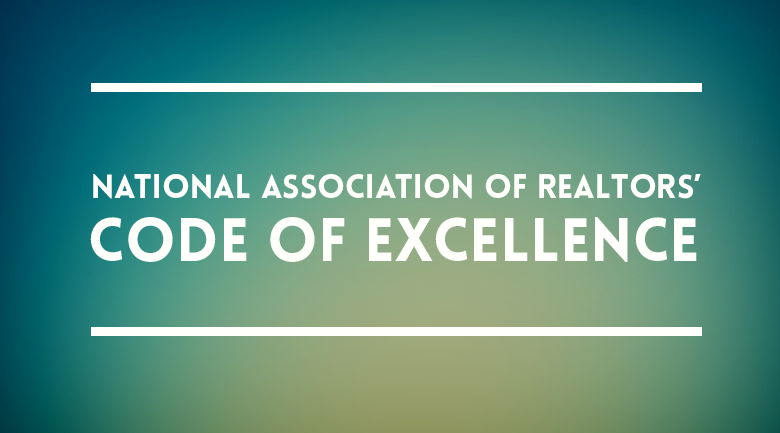
Allegations that two MLS operators violate anti-trust laws
In the interest of full disclosure, I should start by telling you that while researching this editorial, I discovered I’m almost a zero. At least, according to neighborcity.com, which is in the news for recently filing countersuit against the NorthstarMLS and MRIS, naming the National Association of Realtors (NAR) as a co-defendant.
The operator of neighborcity.com, American Home Realty Network (AHRN), alleges both MLS operators are in violation of anti-trust laws, and that the original copyright suit brought by the two MLS operators is just a bogus claim to prevent AHRN from exercising their “right to inform American consumers to assist them in making choices on the biggest purchases of their lives.”
According to their own website, neighborcity.com – owned and operated by AHRN, is an “operational brokerage” by which I believe they mean “paper brokerage” since they don’t actually employ agents. Their business model is, as far as I can tell, based upon receiving referral fees from “non-paper brokerages” that have “non-paper agents” to assist “non-paper consumers” in buying “non-paper houses.” Although, to be fair, buying all those “real” houses does actually generate quite a lot of paper.
Operating across different regions
AHRN/neighborcity.com operates with a San Francisco address as a California “brokerage” but the two lawsuits involve MLS services that are far, far, far from the sunny hills and valleys of San Francisco. Which gets to one part of the problem: the collision we’ve repeatedly seen between the competing business models of geographic “flesh-and-blood” brokerages and virtual websites that want to make money in the realm of real estate.
Under CA state law, a real estate brokerage is defined as including anyone that “solicits prospective sellers or purchasers of [real estate],” but are you really a brokerage in St. Paul Minnesota (Northstar) or Maryland (MRIS) if your mailing address is in San Francisco, you don’t employ agents in either Minnesota or Maryland, and your business model is based upon taking a cut of an industry derivative? In other words, do you deserve to be called a stockbroker if you don’t actually buy or sell stocks, but provide information about stock brokers and make a profit every time you refer a friend or relative to a preferred stock broker?
…and then the internet came along…
While I don’t know the complete history behind the evolution of California brokerage law and it’s definition, I’m willing to make a friendly bet that the definition of brokerage has been expanded over the years and widely interpreted to consider any plausible behavior that pertains to real estate as engaging in “brokerage.”
Why? Again, I don’t know for sure, but my hunch is to make it easier for the state to protect consumers from fraudulent or misleading advertising, and to make it easier to bring claims of fair housing violations against a wider audience of individuals. Historically, a broad definition of a brokerage gave the state greater regulatory control over a business that was by its nature (and existing technological limitations) inherently local. And then the internet came along…
Neighborcity’s fight for information
I’m sure that neighborcity.com will argue that they bring value to the real estate transaction by providing “hidden” information to the consumer that those un-fair people-based brokerages want to hide. However, providing information about a market isn’t the same as providing that market. I can tell you all day long which cardiologist is the cutest, but that doesn’t mean you should trust me to crack your chest open and put some stitches in your ticker.
In addition to the fact that they aren’t capable of actually closing a transaction involving a home because, you know, that would involve something more than paper (like a human being), the information that neighborcity.com does provide seems abysmal. Which is where that disclaimer from the introduction becomes relevant. Apparently, I suck.
How I don’t match their algorithm
I’m not sure exactly why, but my best guess is that I’m almost a zero (07 out of 100 to be exact) because I work as part of a two-person team. We’ve been a team for more than a decade (ie, we aren’t just a “paper team”), and sometimes we list properties under my MLS ID. Other times we use Britton’s ID. Sometimes our closings are reported under my MLS ID, other times they are reported with her ID. Go look either one of us up on neighborcity.com, and you’ll quickly discover that despite our great reputation in the SF brokerage community, the incredible number of referrals that power our business, our raving testimonials, and our great Yelp reviews that… we both suck. Because the “operational brokerage” that is neighborcity.com isn’t designed to deal with anything that doesn’t match their algorithm.
Well, fine, you might say, teams are an exception to the rule, no algorithm designed by incredibly super-smart engineers with advanced computer science degrees can ever get everything right (but we should still trust the algorithm over our flesh and blood friends)…
Ok then, how about this example? A home we listed in the San Francisco MLS four days ago isn’t in the neighborcity.com database. I searched by street name “4064 17th” and zip code “94114” and then tried multiple variations with no success. So finally I gave up and just exasperatedly typed in the exact MLS listing number. And then I got results! Neighborcity.com returned one listing – a house located in Hesperia, California that sold in November of 2010 for $100,000. Which is almost exactly like my listing in the Castro neighborhood of San Francisco for $1,695,000. Except that the home in Hesperia is 425 miles to the south-east of San Francisco and $1,595,000 cheaper. Oh, and it isn’t even for sale anymore. Yeah, that.
Bad information is not valuable information
The usual argument is that the consumer benefits when the most information possible is made widely available. As I hope the two examples above demonstrate, bad information is not valuable information (if you recently upgraded to iOS 6, you’re probably with me on this). So let’s flip the argument around. Do the owners of the data have the right to ensure that it is used accurately?
I say that yes, absolutely, the owners of the original data have the right to ensure that their data is used accurately and responsibly. Why? It isn’t to protect me or my flesh-and-blood business. I’m doing just fine, thank you very much.
Consumers are the biggest losers when inaccurate information is gussied-up and trotted about as beautifully accurate data that can be relied upon. And if you look at the disclaimer page of neighborcity.com you’ll be delighted to discover that “[AHRN]… disclaims any warranties concerning the accuracy, quality, title or timeliness of the content on the [neighborcity.com] website.”
This is exactly why I support NAR, Northstar MLS, and MRIS in their lawsuit to ensure that their data is used in a way that helps consumers.
Matt Fuller brings decades of experience and industry leadership as co-founder of San Francisco real estate brokerage Jackson Fuller Real Estate. Matt is a Past President of the San Francisco Association of Realtors. He currently serves as a Director for the California Association of Realtors. He currently co-hosts the San Francisco real estate podcast Escrow Out Loud. A recognized SF real estate expert, Matt has made numerous media appearances and published in a variety of media outlets. He’s a father, husband, dog-lover, and crazy exercise enthusiast. When he’s not at work you’re likely to find him at the gym or with his family.








































victorlund
October 9, 2012 at 2:21 pm
I can’t imagine why MLSs or Brokers would care about this.